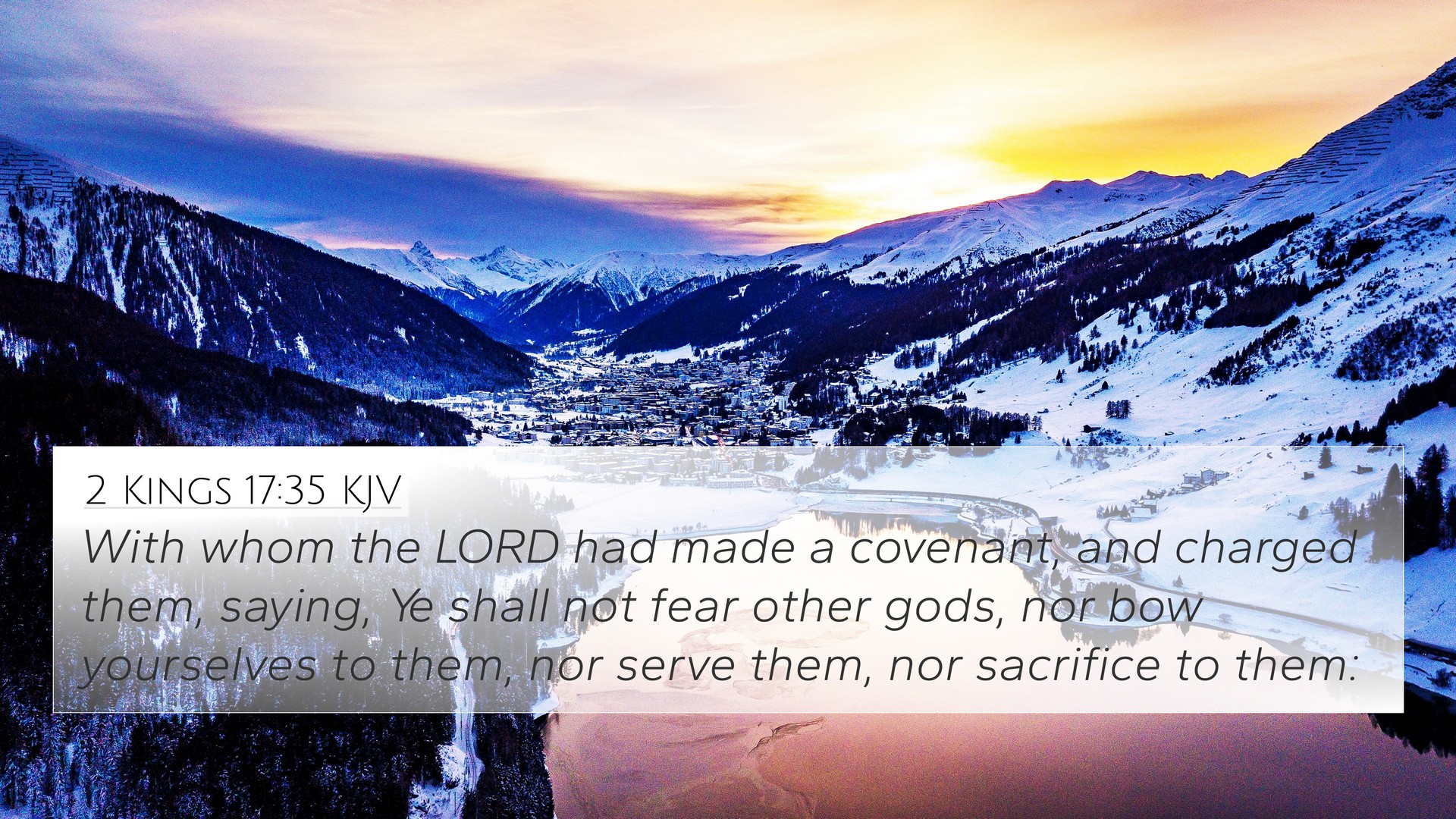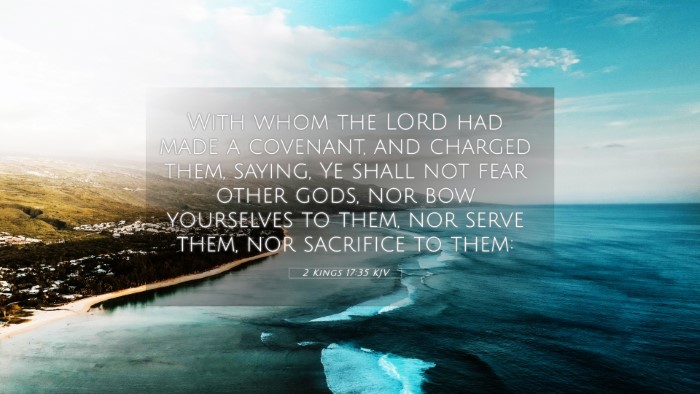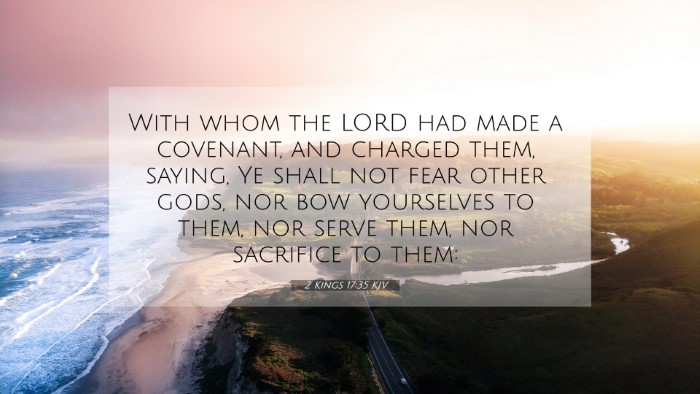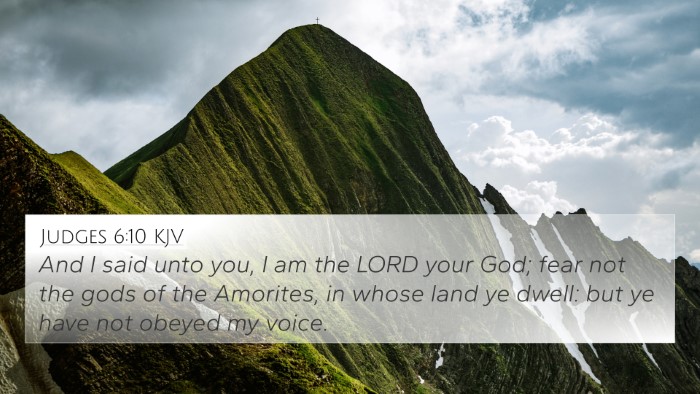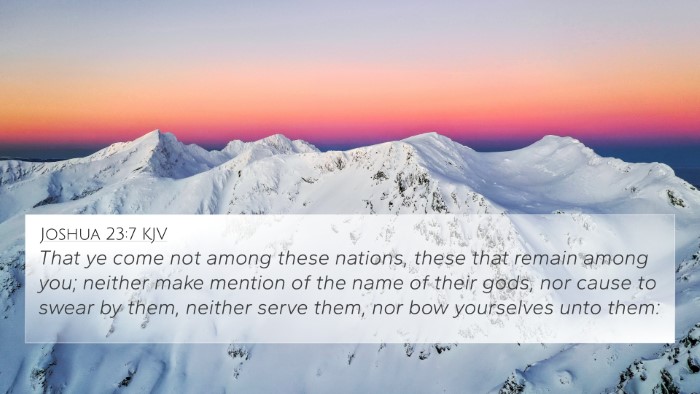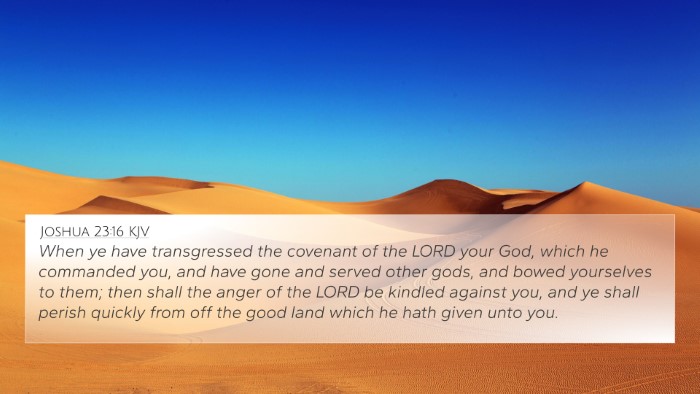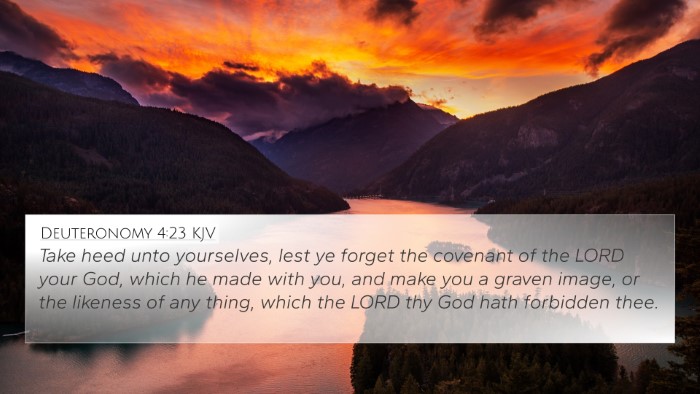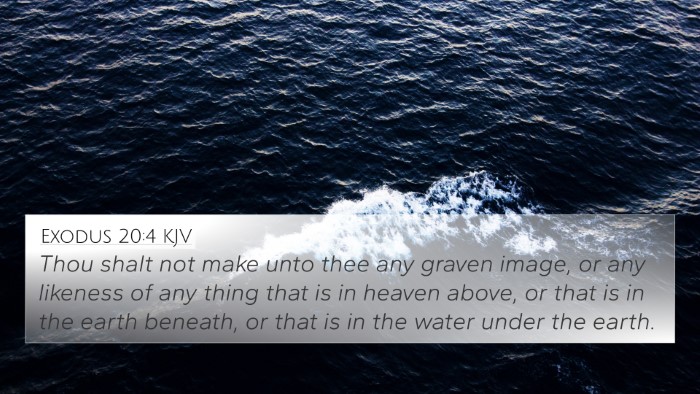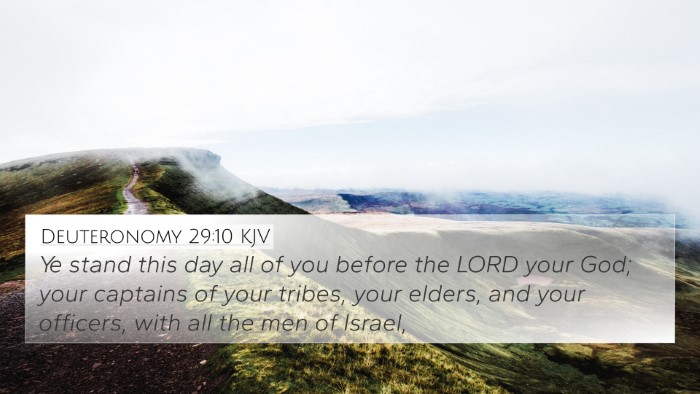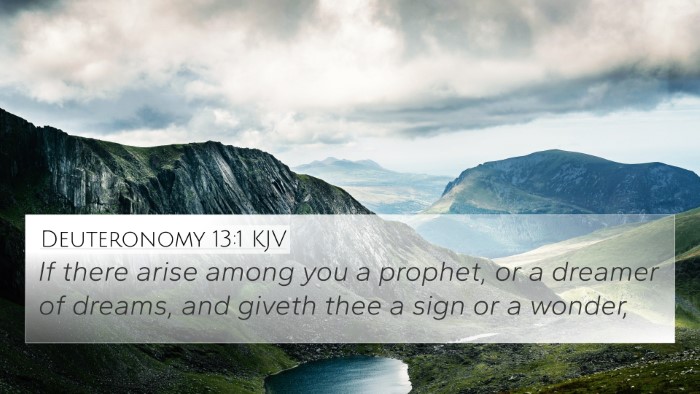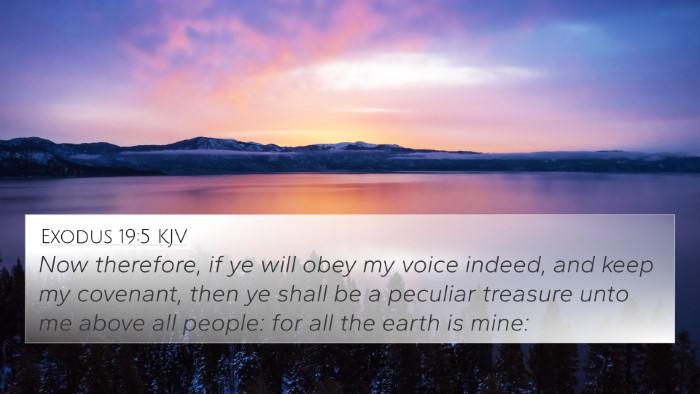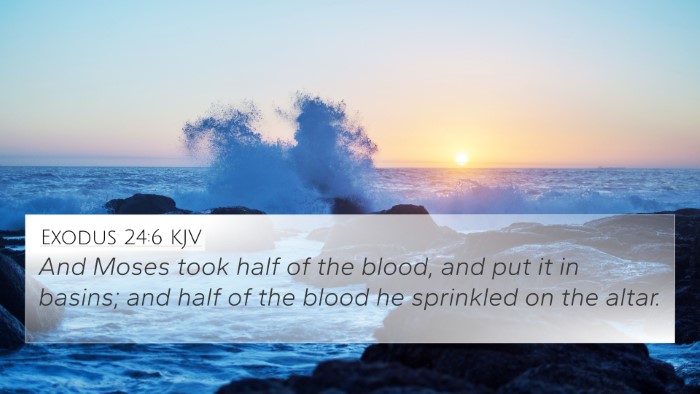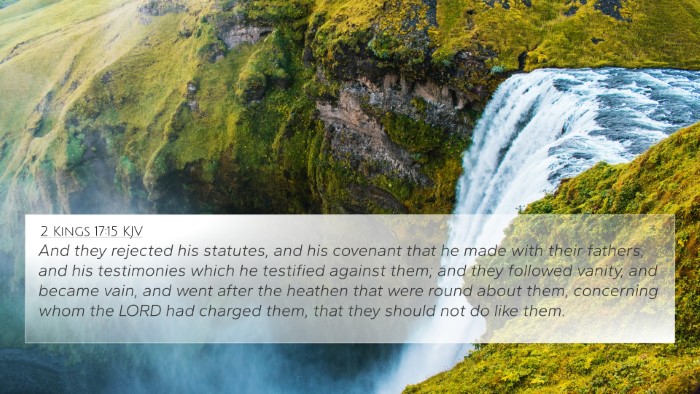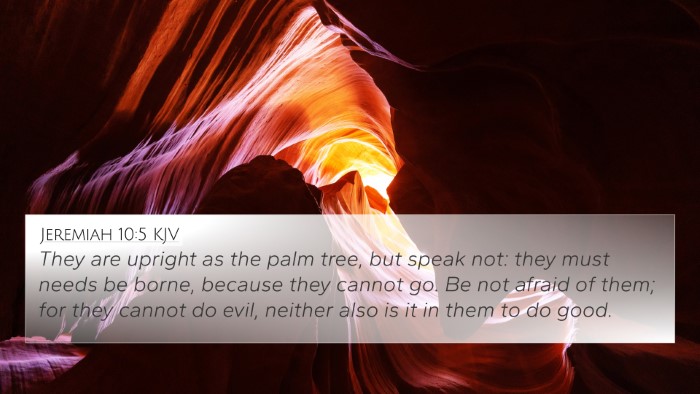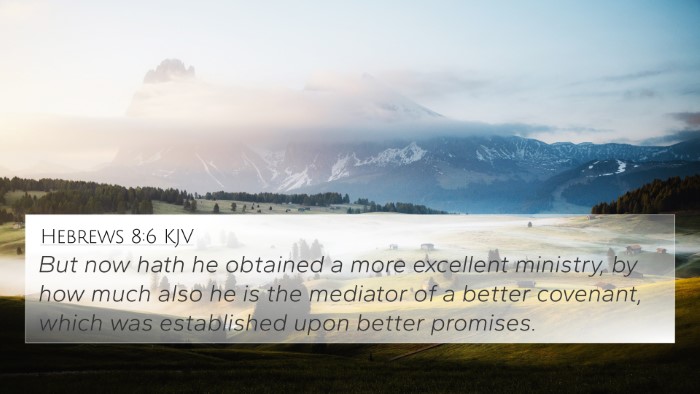Understanding 2 Kings 17:35
2 Kings 17:35 states: "With whom the Lord made a covenant and charged them, saying, You shall not fear other gods, nor bow yourselves to them, nor serve them, nor sacrifice to them:" This verse captures a significant moment in biblical history, where the covenant between God and His people, specifically during the time of the Northern Kingdom of Israel, is emphasized.
Summary and Insights from Public Domain Commentaries
This verse serves as a reminder of God’s enduring covenant with Israel, highlighting the expectations He set forth for His people. Let’s delve deeper into the insights provided by prominent biblical commentaries.
- Matthew Henry's Commentary:
Henry emphasizes the gravity of the covenant God made with Israel, illustrating that this covenant contained specific commands against idolatry. It serves as a warning against the spiritual decline Israel faced, where they turned away from God despite His expectations.
- Albert Barnes' Notes:
Barnes highlights that the covenant underscored the necessity of exclusive worship of Yahweh. The charge against idolatry is central to understanding the nature of God’s relationship with Israel and serves as a theme throughout the entire narrative of the Old Testament.
- Adam Clarke's Commentary:
Clarke points out that this command was given to curb the tendency of nations to worship foreign gods. He connects this to the continuous call for God's people to remain steadfast in their worship and service, contrasting their past failures with the divine expectations set forth.
Thematic Connections and Cross-Referencing
To fully understand the implications of 2 Kings 17:35, it is essential to explore its connections with other scripture. Below are several Bible verses that relate to this theme of covenant and idolatry:
- Exodus 20:3-5: This passage contains the first commandment, emphasizing the prohibition against having other gods and forming idols.
- Deuteronomy 6:13: It instructs the Israelites to fear and serve the Lord exclusively.
- 1 Kings 18:21: Elijah challenges Israel to choose between the Lord and Baal, reiterating the crucial decision regarding whom they should serve.
- Isaiah 43:10: God affirms that He alone is God, stressing the uniqueness of His covenant people.
- Jeremiah 2:13: This verse reveals the folly of forsaking God for false idols, showcasing the spiritual dangers at hand.
- Matthew 4:10: Jesus references the command to worship only God, establishing continuity of this covenant command in the New Testament.
- Acts 14:15: Paul and Barnabas implore the people to abandon idol worship and turn to the living God, reflecting the ongoing call to faithfulness.
Identifying Connections and Cross-References
Through this verse, we can see a broader historical narrative regarding Israel's covenant relationship with Yahweh. The theme of remaining faithful to God underlines much of the scripture. To study this effectively, one may utilize various tools for Bible cross-referencing, including:
- Bible concordance and cross-reference guides
- Cross-reference Bible study resources
- Bible chain references for thematic studies
- Detailed analyses of Old and New Testament connections
- Comparative studies of biblical themes
Conclusion
2 Kings 17:35 invites readers to reflect on the covenant nature of God's relationship with His people and the imperative of exclusive worship. It serves as a pivotal reminder within both the Old Testament and New Testament narratives of the importance of fidelity to God, further enhanced through cross-referencing biblical texts.
